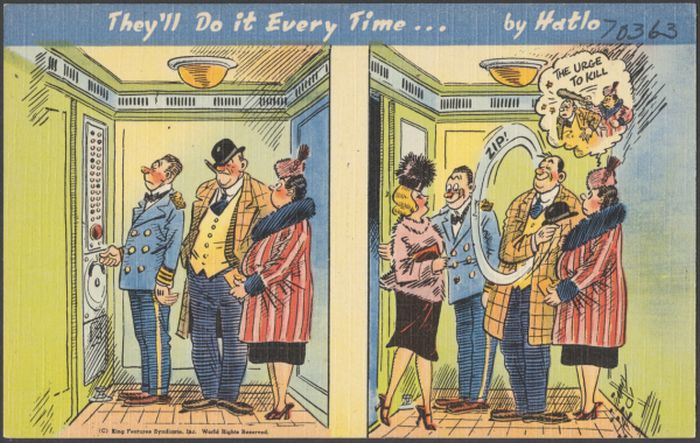Entry from December 21, 2008
When I was a school-teacher, I used to be in charge of something called “General Studies.” This meant that I got to meet several times a week with brighter pupils in order to put to them such challenging and troublesome questions as “Why work?” Or “Why should we save the whales?” Or “Should one tolerate those who do not believe in toleration?” Or “Should teachers be paid more than miners?” One favorite of mine went something like this: “If there is a water shortage and everybody else saves water, it won’t matter if I don’t. And if nobody else saves water, the little I would save won’t make any difference. So, either way, I might as well use a lot. Discuss.” That one used to drive them crazy. Another question that sticks out in my memory after all these years was this little beauty: “Should a government’s science policy be determined by its scientists or its politicians?”
It sticks out in my memory because it seemed to me then and seems to me now the only one of the hundreds that we tested our wits against which had a right answer. And a simple right answer at that. A moment’s thought, as they say, was enough to see that the answer had to be the politicians. Politicians are stewards, hired by the electorate to manage what is not their own but held in the public trust for the benefit of all. The duties of stewardship include, perhaps above all others, the duty of allocating scarce resources. To no group, therefore, do the managers of the fisc give a blank check. It would be an abdication of their own responsibility to do so. Scientists should thus no more be in charge of a country’s science policy than generals should be in charge of its defense policy or farmers in charge of its agricultural policy and therefore empowered to give themselves whatever they want at public expense. To the extent that scientists do become involved in science policy, they cease to be scientists and become politicians.
It really is as simple as that. Not, however, according to The New York Times, which the other day addressed an editorial to the incoming Secretary of the Interior. “Mr. Salazar’s most urgent task will be to remove the influence of politics and ideology from decisions that are best left to science,” the editorialist wrote. But science, alas, offers us no guidance whatsoever when it comes to policy decisions. All it can do is hypothesize, more or less persuasively, about the observable world. What to do about the hypotheses of science must always be left to the wisdom or unwisdom of the politicians and ideologues whose “influence,” for that reason, can never be removed but only (at most) disguised from innocents at The New York Times. We may wish it were not so as much as the Times clearly does. But it is so nevertheless.
What prompted this editorial outburst was a recent spate of bureaucratic in-fighting of a depressingly familiar kind in the Interior department.
Just as Mr. Salazar’s name was surfacing for the job, Earl Devaney, currently the department’s inspector general, reported to Congress that on 15 separate occasions the department’s political appointees had weakened protections for endangered species against the advice of the agency’s scientists, whose work they either ignored or distorted.
Nowadays, if you’re a bureaucrat who doesn’t like the decision some other bureaucrat has made, your first recourse is to moralize the difference between you. The other bureaucrat, you insist, is not just mistaken in his judgment of the public good, he is wicked and corrupt for ignoring the advice of “scientists” — whose scientific knowledge, as we have seen, comes with no more political skills than are vouchsafed to non-scientists — in making specifically political decisions. Politicians of the other political persuasion who know quite well that this is not the case will pretend to believe you all the same and thunder, along with The New York Times, against the unconscionable, immoral, indecent behavior of their political enemies.
It’s all a silly charade but far from harmless. For it means that”scientists” are put in the position of a privileged élite who — rather like editorial writers, come to think of it — can be assumed to be far above politics. Dirty, nasty business, politics! We should get it out of politics. And the élite will have you believe that all you have to do to remove the influence of politics on politics is to put them, the scientists and the editorial writers, in charge. Any leftover bureaucrats or politicians can then be left to rubber-stamp what they decide. That The New York Times is so na ve and foolish and self-important as to believe this nonsense is, perhaps, not surprising. More worrying is the thought that Mr Salazar and the administration he will soon represent — which came to power on a wave of feigned revulsion against the “partisanship” of its predecessors — may also allow themselves to believe it.
Discover more from James Bowman
Subscribe to get the latest posts to your email.

